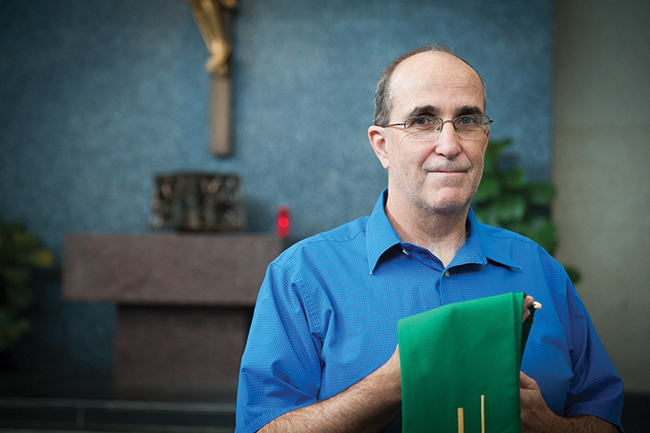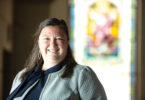
by Leon Suprenant
When we want our children to grow, we encourage them to “use their imagination.”
Since the restored permanent diaconate is still relatively new, we sometimes encounter questions that boil down to: “What are we going to do with all these deacons?”— as though it were a problem and not a blessing.
The answer is: “Use your imagination.”
As Deacon James Keating notes: “The diaconate exists as a vocation of creative tension — a cleric living a lay life — and must remain in this tension if the church is to possess, in any concrete way, a diaconal imagination.”
I thought I would suggest four ways that we might use our “diaconal imagination” in envisioning vocations to the diaconate.
Icons of Christian service: We need a deeper appropriation of the servant identity of Christ, an appropriation that ignites the public witness of deacons so as to attract younger men.
Deacons are icons — or living images — of Christ the servant, who was attentive both to his Father and to human pain. Out of his deep, interior communion with the Father, the deacon carries the healing love of God to those who are hurting.
Who’s driving? The diaconate is not like one website among many that we might visit at our convenience. Rather, it’s like handing over control of our entire “keyboard” to Christ, letting him “drive.” This vulnerability and holy indifference is necessary if men are to discern properly.
Our culture teaches us to set our goals and then go achieve them. But the diaconate — and all church vocations —must be about openness to what God wants, not what I want.
Ecclesial Man: Men discerning the diaconate must understand that, if accepted, the first thing they have to do is detox. The American male psyche is predominantly political, economic and hedonistic — and not necessarily in that order!
A deacon candidate must be reprogrammed (we call it “formation”) to “think with the church,” to become “Ecclesial Man.” He must learn to not view the world in “us versus them” categories, and he must become primarily concerned about the salvation of souls and not his own comfort or financial gain.
Reservoirs, not canals: As St. Bernard says, men should be more like reservoirs than canals, because a reservoir retains water until it is filled, then discharges the overflow without loss to itself. We can’t really give until we have received. We see this in men’s spiritual lives, but also in their marriages.
If a marriage has been mature, affectively vulnerable and based upon a full, mutual gift of self, then and only then can the wife experience the diaconate as the next step in the already beautiful story of her husband’s presence to her and God’s love for them.






